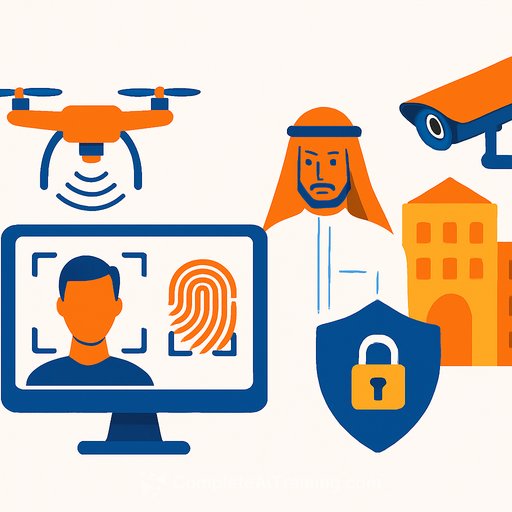Integrated Security Solutions Protecting Saudi Arabia’s Hospitality Future
As Saudi Arabia prepares to welcome a record 116 million visitors in 2024, security in the hospitality sector is taking center stage. The upcoming Future Security and Safety Summit 2024, held from September 29 to October 1 at Riyadh International Convention and Exhibition Center (RICEC), will spotlight how technology is reshaping security for the Kingdom’s mega hospitality projects.
Technology at the Forefront of Hospitality Security
Tawfeeq Alsadoon, Group Head of Security at Red Sea Global, will deliver a keynote titled “Securing the Tourism Renaissance: Integrated Physical Security Solutions for the Hospitality Sector.” He highlights that major projects like NEOM, the Red Sea Project, Amaala, AlUla, and Diriyah require smart, integrated security approaches that combine AI, drones, biometrics, and advanced surveillance.
These technologies form the backbone of a proactive security model. AI-powered video analytics detect unusual behavior in real-time, drones patrol coastal perimeters, and biometric systems control staff and VIP access. This integration helps anticipate threats, speeds up response times, and reduces dependence on manpower.
Balancing Technology with Human Touch
Despite the reliance on technology, Alsadoon stresses that security must remain invisible to guests. The goal is to create a safe, welcoming environment without making visitors feel surveilled. This requires well-trained teams who respect cultural sensitivities, de-escalate situations discreetly, and act empathetically while maintaining vigilance.
The Road Ahead: Sustainable and Intelligent Security Models
Saudi Arabia’s hospitality sector is expected to adopt more sustainable and experience-focused security practices in the coming decade. Innovations such as digital twins, integrated command centers, and predictive analytics will help manage risks while protecting guest privacy and data integrity.
Additional Insights at the Future Security Summit
- Day two will cover aviation security with a focus on enhancing resilience across expanding airspace networks.
- The entertainment sector will be explored through sessions on embedding security into venue design for improved guest experience and safety.
- Andrey Reis, FIFA’s Director of Security Operations, will open the day with a keynote on security and risk management.
The Summit runs alongside the Fire Protection Summit, which gathers experts to discuss evolving fire safety challenges in the Middle East.
Industry Commitment and Event Overview
Bilal Al Barmawi, CEO and Founder of 1st Arabia Trade Shows & Conferences, highlights Intersec Saudi Arabia as a meeting point for global expertise and local ambition. The event showcases the Kingdom’s focus on innovation and human-centered security models supporting its growth as a top tourism and business destination.
Now in its seventh edition, Intersec Saudi Arabia covers five key categories:
- Commercial and Perimeter Security
- Cybersecurity
- Homeland Security and Policing
- Fire and Rescue
- Safety and Health
The exhibition expects over 27,000 industry professionals, policymakers, and buyers across a 30,000 sqm show floor.
Riham Sedik, Exhibition Director at Messe Frankfurt Middle East, notes that each edition reflects the rapid transformation in the region and offers unmatched opportunities for collaboration and business growth.
For hospitality and events professionals looking to deepen their knowledge on AI applications in security and other sectors, exploring specialized AI courses can be beneficial. Resources such as Complete AI Training’s latest AI courses provide practical skills to keep pace with emerging technologies.
Your membership also unlocks:





